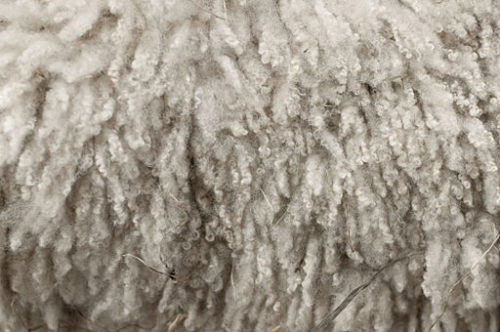
January 26, 2017; BBC News
The tidal island of Grimsay, North Uist, is in Scotland’s Outer Hebrides. This rather romantic backdrop is home to Uist Wool. Uist Wool is a nonprofit mill and wool center that first emerged as a volunteer community benefit society and Scottish charity in 2011. The BBC confirms that thanks to a £90,000 grant from the Highlands and Islands Enterprise (HIE), the center is now “a fully trading social enterprise.” The National clarifies that the new structure empowers Uist Wool to recycle profits back into its community.
Uist Wool is a social enterprise; as such its role is to put something back into the surrounding community, to support and boost Uist from a human perspective, growing and building for the future.
Social Investment Scotland notes other partnerships that contributed to this development. As the wool aficionado site Wovember puts it, this marks an important milestone for Uist Wool, as director Dana MacPhee and her team work to “keep the circle of life turning in the Outer Hebrides.”
The nonprofit revitalizes the island’s traditional wool industry via textile craftsmanship, community development, and training and employment. It nourishes this sustainability through environmental protection efforts. An Uist Wool blog talks about how they work to “reduce the potential footprint that, though a small business, industry like [theirs] can generate.” Their environmental friendliness includes the use of renewable wind energy. Two 6kW Kingspan turbines “are almost always whizzing away on the hillside beside the wool shed.”
The charitable-giving landscape of Uist Wool has always identified it with social entrepreneurship. Social Investment Scotland notes that the first £1 million used for site purchase and initial mill construction came entirely from public funds. The latest additional funding expands its governance to make it an actively trading, profit-earning social enterprise that reaches international markets through a new online store. MacPhee explains, “This governance structure allows [Uist Wool] to trade and put any profits back into the organization to pursue our core aims… If we do well as a mill, the benefits get passed back to the crofter or farmer.”
The mill specializes in a range of yarn production. It uses fleece from one of the oldest native Scottish sheep breeds, the Hebridean. Uist Wool’s development background is based on a community collective some years ago, “to find a fresh purpose for local fleece that would reconnect the community with their cultural heritage of wool-working.” MacPhee expresses sentiments that many social entrepreneurs might recognize:
Sign up for our free newsletters
Subscribe to NPQ's newsletters to have our top stories delivered directly to your inbox.
By signing up, you agree to our privacy policy and terms of use, and to receive messages from NPQ and our partners.
[It] was born from this belief and in the old movie cliché, “Let’s do a show, and do it right here!”—usually in some old, creaky barn that mutates into a lush nightclub once they hang up a mirror ball. We had the wool, the talent, the ambition, a heritage and tradition in wool-work and a few volunteers who felt the same way. This was the mantra.
The Wool Development Group developed out of this mantra in 2008. MacPhee credits Chairperson Mary Norton for coming up with the Mill idea. She tells Wovember that Libby Mills, one of the original Green Mountain Spinnery founders in Putney, Vermont is a good friend of Norton. Mills visited North Uist in 2008. She noticed similar conditions that Vermont experienced in the 1970s. “The price of wool was negligible, fleece…was disposed of in any possible way.” The last mill in Uist closed in 1965. Despite memories of the industry, local milling knowledge disappeared from the community. Libby’s visit and experience spurred the Wool Development Group to research their own community’s options. At that point, MacPhee joined on as a volunteer.
The National further explains how local community meetings between crofters and crafts people led to a feasibility study that was completed in 2010. The outcomes of the study eventually attracted the public funding and grant giving that led to the establishment of Uist Wool in 2011. MacPhee tells Wovember about how the training center developed between 2010 and 2012. Support for its development included funding from the European Social Fund (ESF). ESF’s support initiated the CALANAS project. (“Calanas” is a Gaelic word for wool-work.) Funding went directly towards theoretical and practical trainings. Visiting tutors provided a flexible approach to keep the learning content fresh. By 2016, Uist Wool had its first team of hired employees. While MacPhee started off as a volunteer, and her 2012 part-time coordinator position was made possible by additional funding, she was hired on as director in 2016. The others who were hired—two full-time engineers, three part-time production assistants, and a mill manager—participated in the CALANAS training program.
Uist Wool’s success story with saving the wool industry in the Outer Hebrides is underscored with the innovative spirit driving social enterprise. Do not disconnect from the community, and do not hesitate to keep reinventing the wheel.
[There is] a lot of time sitting in a small dark room typing, typing, typing. Reinventing the wheel each time to a new funder—“Explain the benefits to the community.” “Who will your project benefit?” “How many people will benefit from your project?”—and on, and on. You get the drift. This hasn’t been an easy project and each stage has inched forward slowly as we discover more about wool, the machinery, ourselves.
Inspiring words that should certainly trigger sparks across our sector—Noreen Ohlrich













